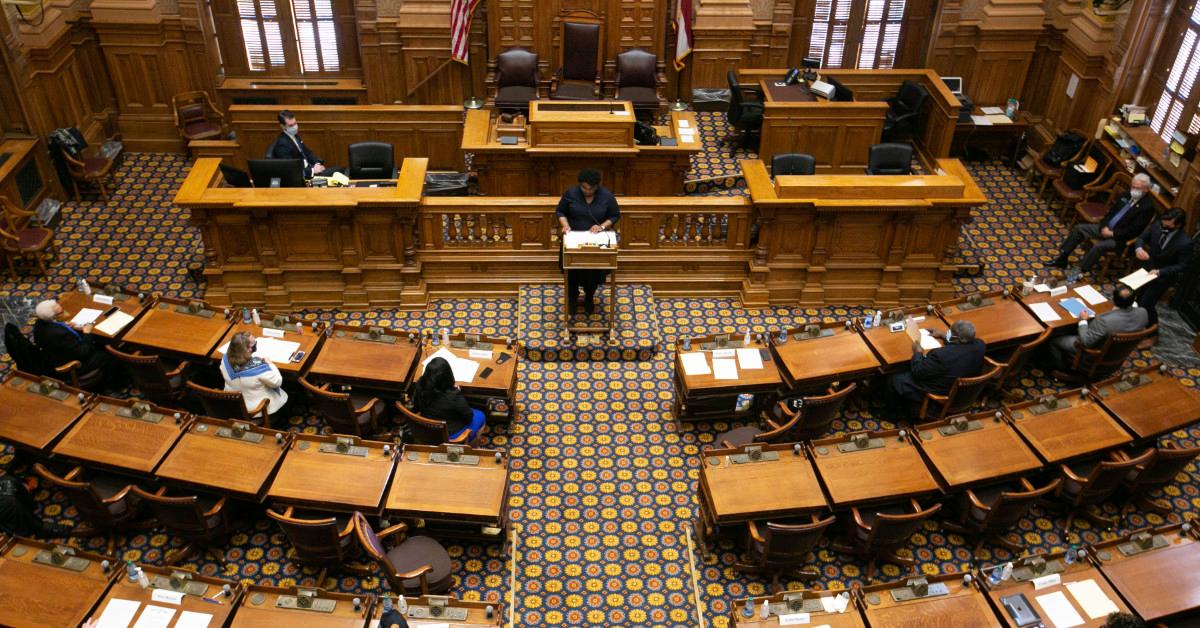Republicans Are Planning to Challenge Biden’s Victory, but It’s a Long Shot
Updated Jan. 3 2021, 5:10 p.m. ET

What happens on Jan. 6, 2021, depends on whether U.S. Representative Mo Brooks, a Republican from Alabama, is successful in challenging the results of the 2020 presidential election that day.
According to The Wall Street Journal, Brooks is leading at least 10 other Trump-supporting members of Congress in a long-shot effort to reverse President-elect Joe Biden’s victory over President Donald Trump, and he’s planning to challenge the results when Congress assembles to count the Electoral College’s votes on Jan. 6.
They plan to reject Electoral College votes of some states as not “lawfully certified” unless commission to conduct an emergency, 10-day audit of the election results is appointed.
“My No. 1 goal is to fix a badly flawed American election system that too easily permits voter fraud and election theft,” Rep. Brooks said in December, per The New York Times. “A possible bonus from achieving that goal is that Donald Trump would win the Electoral College officially, as I believe he in fact did if you only count lawful votes by eligible American citizens and exclude all illegal votes.” (Note: The Justice Department has found no evidence of widespread fraud in the 2020 election.)
How are the electoral votes counted?

Georgia Democratic Electors cast their Electoral College votes at the Georgia State Capitol on Dec. 14, 2020 in Atlanta, Ga.
According to the National Archives, Congress will meet in a joint session on Jan. 6 to count the electoral votes. As President of the Senate, current Vice President Mike Pence will preside over the count and will declare who has been elected President and Vice President of the United States.
So it is written Title 3, Chapter 1, Section 15 of the United States Code: “Congress shall be in session on the sixth day of January succeeding every meeting of the electors. The Senate and House of Representatives shall meet in the Hall of the House of Representatives at the hour of 1 o’clock in the afternoon on that day, and the President of the Senate shall be their presiding officer.”
What happens if there are objections to the Electoral College’s vote?
The vice president will also call for any objections to the electoral votes, and any objections must be submitted in writing and signed by at least one member of the House and one Senator. If there is an objection, the House and the Senate will withdraw to their respective chambers to consider the merits of the objection.
“But if the two Houses shall disagree in respect of the counting of such votes, then, and in that case, the votes of the electors whose appointment shall have been certified by the executive of the State, under the seal thereof, shall be counted,” the U.S. code stipulates.
In other words, the votes would not be counted if the House of Representatives and the Senate both agree with the objection, something that hasn’t happened since the 19th century. If they don’t — or if just the House or just the Senate agrees with the objection — the electoral votes will be counted as they were cast.
What if a candidate doesn’t get 270 votes?
The 12th Amendment of the U.S. Constitution outlines procedures for contingent elections in the event that no presidential candidate and/or no vice-presidential candidate wins at least 270 electoral votes.
If no presidential candidate wins at least 270, the House of Representatives elects the President by majority vote, deciding between the three candidates with the most electoral votes, with each state getting one vote, according to the National Archives.
If no vice-presidential candidate wins at least 270 votes, on the other hand, the Senate elects the Vice President by majority vote, choosing between the two candidates with the most electoral votes, with each Senator getting one vote.
Just like successful objections to electoral votes, neither of these contingent election scenarios has occurred since the 1800s.